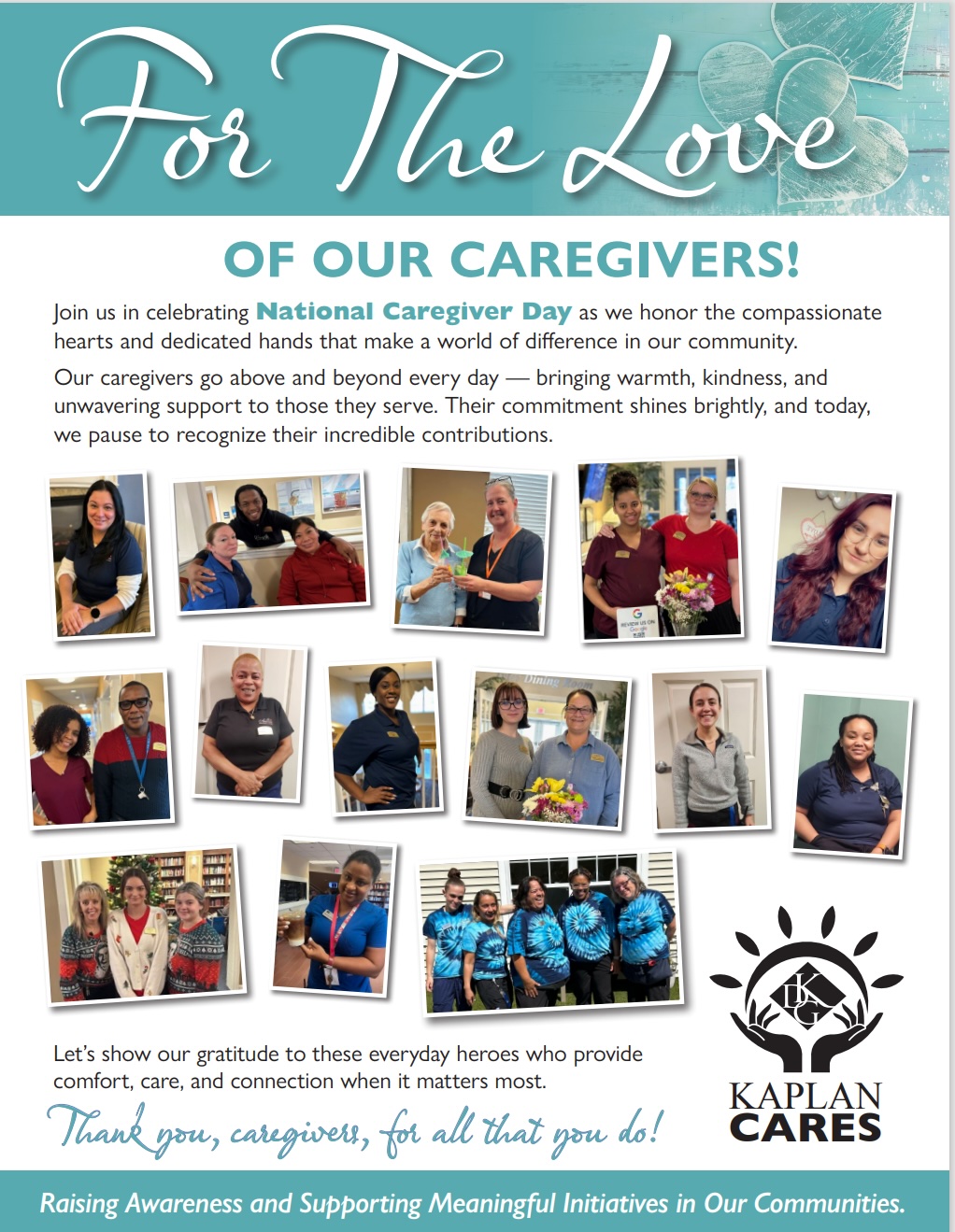Life is full of phases. When you’re a child, you depend on your parent to care for you. As time moves on and you both age, you may see a reversal of roles: your parent may need more help with everyday chores, running errands, and eventually, making important life decisions.
At Kaplan, we’re here to help. If you feel ready for the conversation, we offer five steps:
- Take stock of the situation.
First, is your parent needing assistance completing routine tasks? These might include household chores, climbing the stairs, running errands or even getting to the doctor. Is your parent confident driving? When life at home becomes more difficult, it may be time to discuss senior living options. For example, if your parent is having difficulty:
- Bathing or with other personal hygiene needs
- Taking care of household chores
- Remembering to take their medicine
- Preparing meals
- Shopping, driving, running errands
- Participating in activities, like church or social groups
While some seniors require extra help, others simply want to downsize or free up time for fun. For example, your parent may be ready to simplify life by eliminating certain responsibilities or tedious chores. Or perhaps they’re looking to connect with other seniors with similar interests or take part in onsite social activities.
Talking with a parent about senior living options can be complicated – especially if your parent is fiercely independent or doesn’t envision leaving home. But there are ways to broach the conversation naturally, especially if there are signs that it may be time to think about moving into a senior community. Research, empathy and a bit of tact will all come in handy when you prepare for the conversation.
- Start the discussion by brainstorming the “what ifs.”
If your parent could pick anywhere to live, where would it be? What amenities would they choose? What chores would they love to eliminate? And what activities would be fun to have right on site? What’s not important? A friendly, casual discussion can lead to some great insights.
A list can prioritize needs and help match must-haves with a community’s amenities, resources, and reputation. (Experts recommend reviewing at least three.) What are the pros and cons of each community? The matching process can also lead to additional questions you want to ask during a tour.
- Once you’ve done your research, it’s time for a visit.
First impressions mean a lot. And much can be taken at face value; for example, how you’re treated over the phone or when you walk through the door. How knowledgeable – and friendly – is the staff? Do the residents give off good vibes and seem happy and content? What about appearances of the community? When you’re inside, are the floors immaculate, windows sparkling and tables tidy? Are their small touches to make you feel at home? Such as flowers, plants and fresh décor? Sit down and eat a meal. Observe if other diners are enjoying their meals.
What to look for:
- Friendliness, professionalism, and knowledge of staff
- Cleanliness, neatness and personal touches
- Friendly and engaged residents
- Variety in dining choices with healthy menu options
- Extracurricular activities
- Plenty of space and community rooms
- Additional security when and where needed
- A vitality that can’t always be defined
Also, visit when you and your parent are feeling relaxed and in a positive mindset. If the day is rushed or timing not conducive, consider rescheduling.
- How to strike the right note.
Approaching the topic of moving into a senior living community takes a combination of finesse, honesty and concern – and understanding the points that mean most to your parent. Be casual and caring; voice your concerns but don’t lecture. And be open to feedback. It’s your parent’s life, and they want to be in the driver’s seat.
Need help?
Call Kaplan at (516) 496-1505. We can discuss your needs, and if appropriate, suggest a visit. From Independent Living in our spacious apartments to Assisted Living with help from our qualified and caring staff, at Kaplan, we’re committed to serving all our residents, ensuring they have a happy, active and vibrant life.




